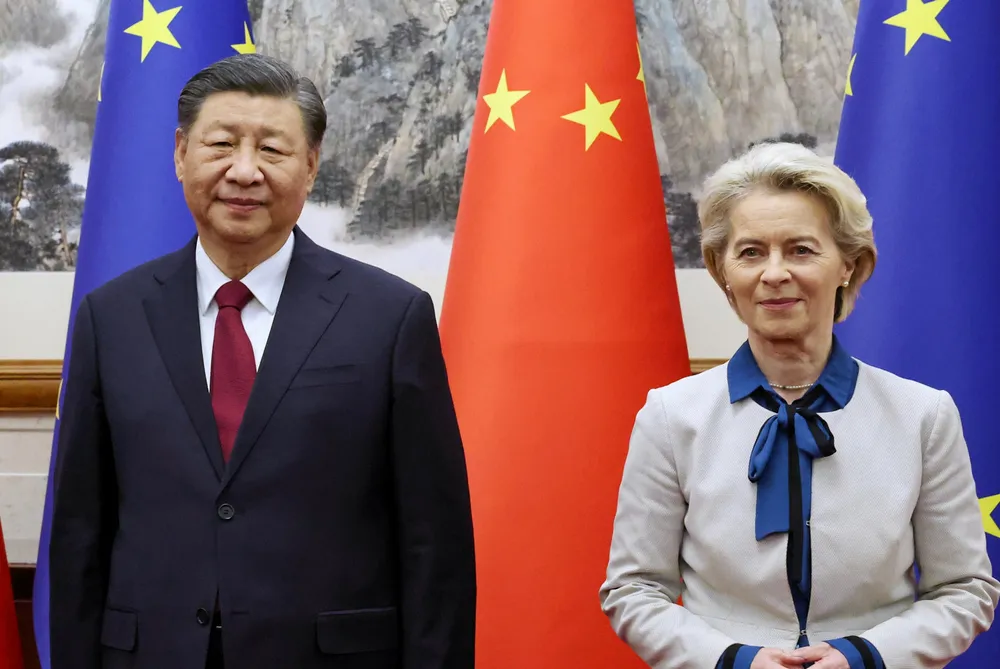China slams 'unfair' EU trade probes into its wind and solar suppliers
Trade tensions continue to ratchet between China and EU over clean and green technologies including wind turbines, batteries and electric vehicles

China has released a report hitting back against what it argues are discriminatory EU anti-subsidies probes into its wind and solar suppliers, objecting to what it says are opaque and burdensome investigations as well as the use of dawn raids with armed police.
China’s Ministry of Commerce announced the conclusion of a trading practices investigation into the EU’s Foreign Subsidies Regulation (FSR), the bloc’s new weapon to protect its industries from unfair competition.
The Commission has launched various FSR probes into Chinese companies over allegations they receive unfair support from their government. Two early probes resulted in Chinese solar and rail equipment suppliers pulling out of tenders in Romania and Bulgaria, respectively.
Last April, the Commission launched a wide-ranging investigation into Chinese wind turbine suppliers for projects initially in Spain, Greece, France, Romania and Bulgaria. It was later expanded to include projects in Germany and other EU countries.
In its newly-released report, China said that the FSR probes constitute “trade and investment barriers” being established against its companies.
It accuses the EU of selective enforcement against Chinese companies, saying that as far as the ministry is aware, the Commission has never launched an in-depth FSR probe into a company from any other country.
The FSR also has a vague and broad criteria for identifying foreign subsidies, said the report, including government refunds of value-added tax.
China also objects to the broad scope of the probes that it says places a heavy burden on companies, requiring them without justifiable reasons to provide huge amounts of information.
The report also objected to the Commission’s use of surprise inspections and other enforcement measures against Chinese businesses, especially those involving armed police, which it said were unnecessary and highly disruptive.
The Commission last April carried out a raid on the Warsaw and Rotterdam offices of the indirectly state-owned Chinese security equipment firm Nuctech, which manufactures scanners for airports and ports. It is unclear if any further such FSR raids have been carried out since.
The report further claimed the FSR’s criteria for determining what constituted a “market distortion” is subjective and arbitrary; and objected to the severe penalties Chinese companies have been threatened with.
In a press briefing last week, a Chinese commerce ministry spokesperson said they would now seek to engage in bilateral consultations with the EU to encourage the bloc to change its practices relating to FSR and provide an open and fair trade environment for Chinese businesses.
Failure to reach an agreement could see China take the dispute to the World Trade Organization.
The Commission has since defended the FSR, saying it is “fully compliant with all applicable EU and World Trade Organization rules.” All companies, “regardless of their seat or nationality, are subject to the rules,” a spokesperson added.
The report comes amid ratcheting trade tensions between China and the West, not least concerning clean and green technologies such as wind turbines, batteries and electric vehicles.
(Copyright)